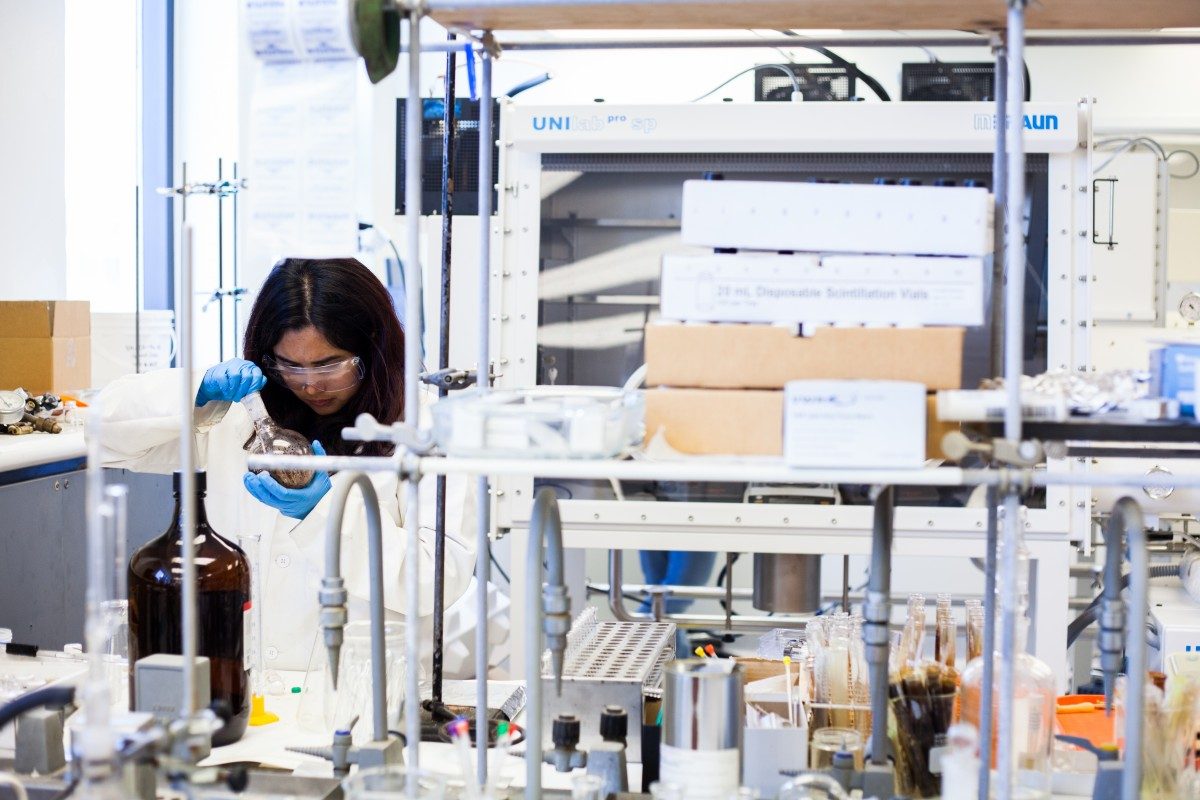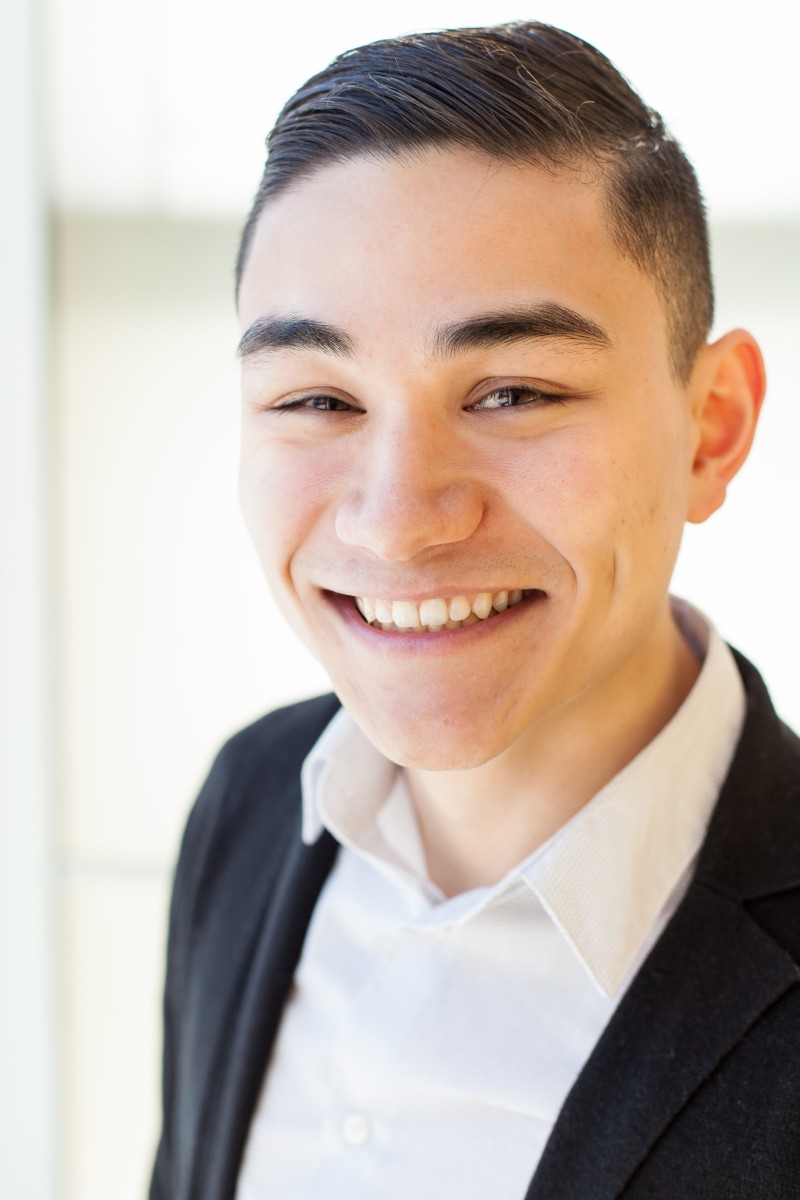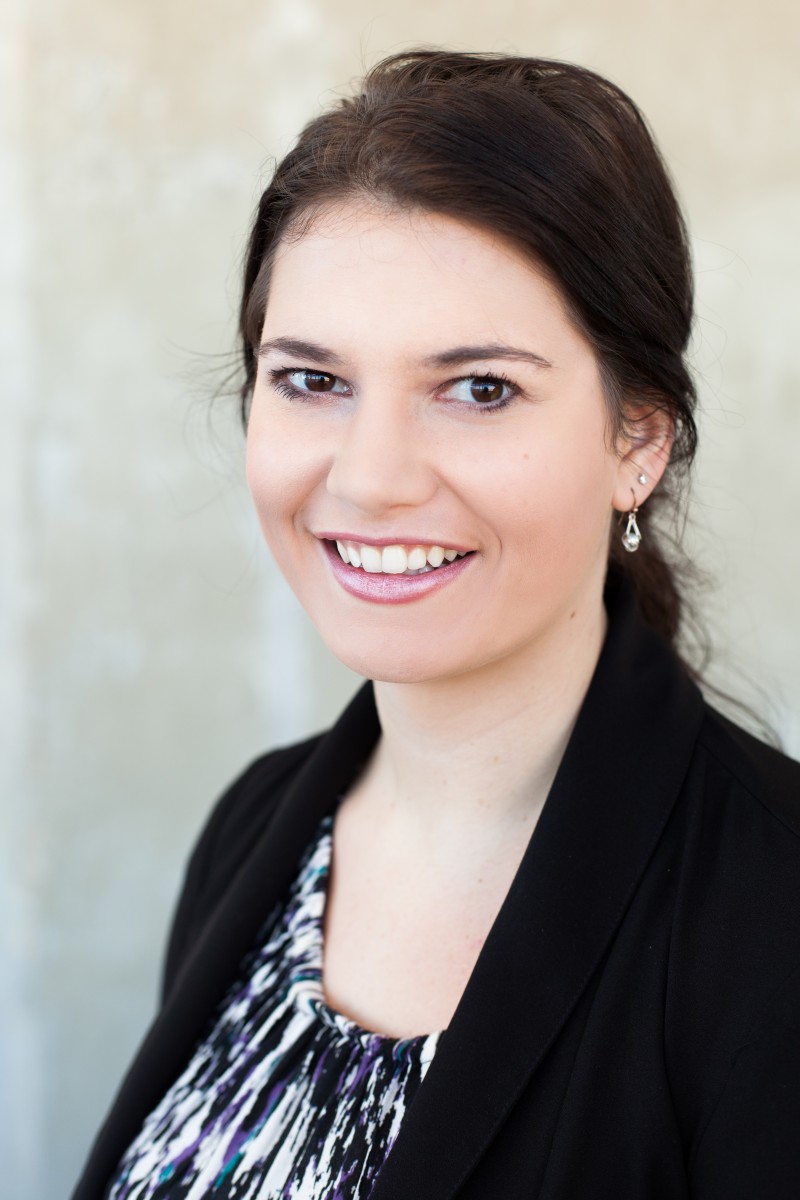
Faculty of Science Co-op Program lets students earn while they learn
“Earn While You Learn”: Sound too good to be true? The Faculty of Science Co-op Program wants students to know that it’s not. Whether it’s gaining practical experience in their chosen field, building future business connections, or test-driving a career they’re not sure about, the Co-op program has it all. Currently on offer to students in Biochemistry, Biological Sciences, Biotechnology, Chemistry, Genetics, Microbiology, Statistics and Computer Science, the eventual goal is to have co-op programs in place for all disciplines within the faculty.
“Co-op” refers to a professional development option where students can alternate regular academic terms with periods of paid, full-time employment in jobs related to their area of study. Science Co-op director Geoff Anderson is happy to expand on why Science students should take advantage of the program.
“The value of co-op is that it’s experiential learning for students. It allows them to take what they’ve learned in the classroom or in a lab setting and actually apply it in a real-world environment. It also allows them to figure out “what can I do with my degree?” Co-op allows students to try different things, different employers. Maybe they go into a wet lab in a hospital for a four-month work term. They could come out of that saying “that’s something I never, ever want to do again”. It’s a learning experience for them. Conversely, they may say “it’s not what I thought it was, this was awesome”.
Science Co-op coordinator Riyalyn Timpog stresses the idea that co-op positions are not just about making money; they are crucial to creating business contacts as well as learning transferable skills that students can utilize once they finish their degree.
“I think as an undergrad it’s very important to start building your network for your future career. This is one of the best ways to make a connection within the industry. Having the work experience, developing the professional work skills that aren’t just exclusive to their field, but wherever they go.”
Daniel Dupas is extremely satisfied with his experience in Science Co-op. He spent three different work terms with Health Canada, and is confident that his time was well spent.
“Through co-op, I was introduced to new work experiences and job opportunities that I would have never encountered otherwise. My work terms introduced me to a whole new world of science-related careers which are not discussed in class, and I feel very fortunate to have found a world of careers in science beyond labs, research, and academia. It is 100% worth taking the “extra year” to complete it for what it has to offer. Obtaining a career in science will only get more competitive as the years go by, so don’t let your degree come empty-handed. You truly need to set yourself apart from other candidates when applying for jobs, and co-op offers you access to exclusive experiences and networking opportunities…”

Daniel Dupas, Faculty of Science Co-op Student
Sarah Mutch also happily endorses Science Co-op. She wants prospective applicants to know that the program is worthwhile.
“I had an amazing experience in co-op, [as] it gave me the opportunity to start my career before I even graduated. I now have a Bachelor’s degree and almost two years of work experience in my field, and I only graduated eight months later than I would have without doing co-op. My last co-op position has even evolved to a full-time position as a biostatistician.”
Kyle Morris (Comp. Sci.) has two internships under his belt and is looking forward to his third, which will see him in San Francisco for eight months, working for Cruise Automation, a subdivision of General Motors. He will focus on developing software that enables autonomous vehicles to navigate safely through busy city streets.
“I’ve greatly enjoyed both of my first two internships, and I’m incredibly excited for the final one coming up this summer. Internships in computer science allow me to transfer the skills and technical foundations I’ve developed at the UofM and apply them in practice. Likewise, I am also able to take the new skills I learn during a work term and make connections to them during my classes. This transfer of knowledge between theory and practice has been crucial in developing a stronger understanding of Computer Science principles.”

Sarah Mutch, Faculty of Science, Co-op student
Guidelines set by Co-operative Education and Work-Integrated Learning Canada ensure that work terms are paid, have some degree of relevance to a students’ academic program, and are a minimum of twelve weeks in duration.
“For most students, it’s four months, from May to August. We try to post the broadest variety of potential placements for students as possible. But if a student has specific interests, it’s incumbent upon them to meet with a coordinator and discuss those interests. We would be responsible for trying to find employers that would meet those interests.”
Science Co-op also provides workshops for students, allowing them to gain hands-on experience. Students prepare resumes and practice interview skills. Workshops are geared not only to the industry involved but to students’ particular needs, and active participation is stressed. Anderson stresses the custom aspect:
“We can structure a workshop. If we know, for example, that certain employers want this on a resume, we can target our workshops specifically. They’re not generic.”
Ultimately, Co-op wants students to be sufficiently prepared to take full advantage of job opportunities. Timpog knows that the process may be intimidating to those who haven’t had much interview experience, but it’s a reality that must be faced in order to be successful.
“Basically, the process is for [students] to be ready for employment, starting from the application. Right now, we’re implementing the intake interview. So being prepared for [an interview] right from the get-go. We’re not an employer, exactly, but let’s see where you’re at, how you’re going to present yourself if I’m an employer. Because you are applying for a program, so let’s treat it as a job. So right at the beginning we’re assessing you. I know it could be a little nerve-wracking for a student who may not have gone through an interview, but it’s great practice.”
Not all co-op positions are within the university. Potential employers come from organizations both big and small, and aren’t limited just to Winnipeg, or even to Manitoba. The Co-op team currently has numerous job postings, most of which are outside the province. Employers across Canada and internationally are on the present roster, and it is expected that with time, Co-op will form connections with many more international employers.
UofM Associate Professor of Internal Medicine and Immunology, Dr. Neeloffer Mookherjee represents the other side of the coin. She employs co-op students in her lab in the John Buhler Research Centre, and has nothing but positive things to say about the experience.
“The co-op program allows me to get highly motivated undergraduate students early in their career … and engage these students in ongoing projects in my lab. In fact, most of my graduate students in the PhD program worked in my lab as undergraduate co-op students and then continued in my lab as graduate students. It is very satisfying as a professor to witness the growth in these individuals from undergraduate co-op students being introduced to the world of research, to becoming successful graduate students flourishing with meaningful publications and making an impact as emerging researchers.”
To learn more, an information session will be held for the Science Co-op Program, all those who are interested may attend.
What: Science Co-op Program Information Session
When: Friday, February 9, 11:30 am – 12:30 pm
Where: Room 315 Buller, Bldg.
P.S. The Science Co-op program is always looking for new employers with whom to partner. If your organization is interested in hiring co-op students, please contact the program at 204-474-7396. Pre-screened, job-ready students are waiting.
The Science Co-op office is located in the Engineering complex, E2-483 EITC.






